Busting the myths around bike engine oil
We ask a clever oil scientist from LIQUI MOLY to scotch some old wives' tales about bike engine oil, and more...
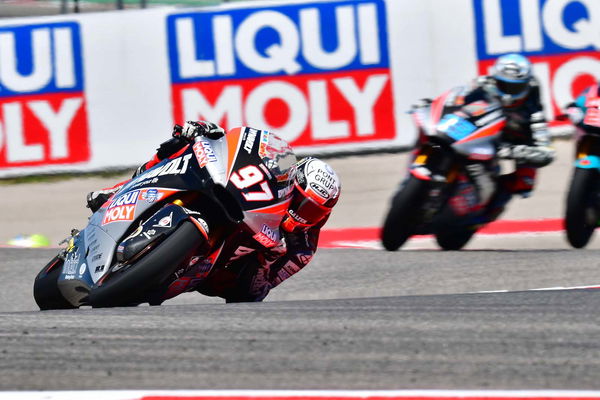
WE WERE speaking to the good folk at LIQUI MOLY the other day. The German company makes a load of quality lubes and fluids for bikes - and actually sponsors the Moto2 and Moto3 championships, as well as backing a load of races and teams.
But we wanted to run some of our favourite oil and bike fluid 'myths' past them (very rock and roll, yes, we know). So we grabbed ten minutes with their top bike lube boffin, Dietmar Schmid. He's an application engineer at the German firm, and an avid BMW rider who does tours in all of Europe, Namibia and in South America. Dietmar gave us the Liqui-Moly inside techno-view on some common questions we hear about oils and lubes.
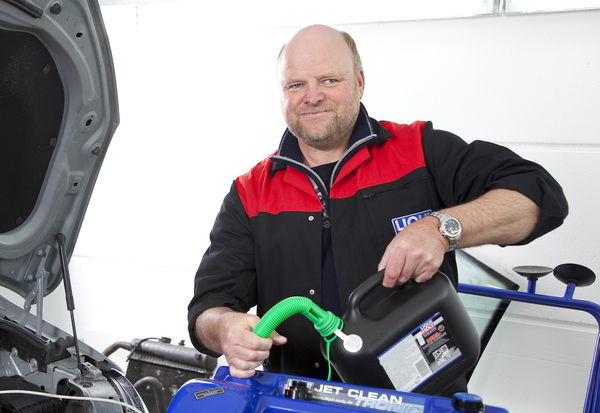
I've heard you shouldn't mixing synthetic and normal mineral oil - is that bad for my engine?
Technically, it is possible to mix all types of engine oil without any problems. You just have to bear in mind that you also mix their properties. The only situation when it makes sense to mix different oils is when you are running low on oil and the right oil is not at hand. Topping up with any oil is always better than riding with low oil. If you top up with oil which doesn't meet the specifications for the motorcycle, you should do an oil change soon.
Is car oil bad for bike engines? I've got a cheap mate who insists on using basic supermarket car oil in his bike, no matter how many times I tell him it's not a good plan...
Usually yes, especially in a motorcycle with a wet clutch. Wet clutches depend on a precisely-defined friction coefficient of the oil whereas engine oils for cars try to reduce friction to a minimum in order to reduce fuel consumption and emissions. In a motorcycle this results in a slipping clutch.
In addition engine oil for cars comes with a lot of extra properties, e.g. for particle filters, which are not needed in motorcycles and may even show adverse effects.
So for a wet clutch, any anti-friction oil additives are bad?
No, not in general. It is like in medicine: the dose makes the poison. For example, our LIQUI MOLY Motorbike Oil Additive is an anti-friction additive which comes with MoS2 particles as solid lubricant. Maximum dosage is three percent - and this ensures that wear and tear are reduced, but the clutch does not slip.
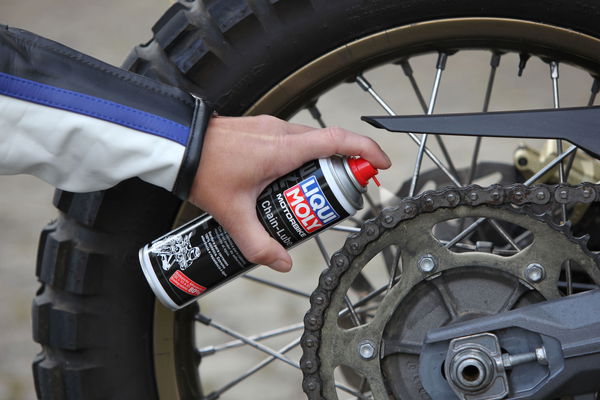
Can you use gear oil as chain lube? I remember it being the official advice in bike owners' manuals years ago.
The basic idea is right because gear oil shows better adhesion properties than engine oil. But on the other hand gear oil is less resistant to acceleration forces than chain lube. So you may think about lubricating slowly running chains with gear oil but for motorcycle chains that is not a good idea. Use a specialised chain lube like our LIQUI MOLY chain lube.
Does petrol really go bad or 'off' if it's left in my bike's fuel tank over winter? Does petrol get 'old'?
Of course, gasoline evaporates over the course of time. But a tank is a sealed system, so this effect is negligible. If you observe a significantly lower fuel level after the winter break, this indicates a small leakage in the fuel system, so gasoline could evaporate (or spill). In general you should always completely fill the tank before the winter break. The less gasoline is in the tank, the more air is inside. The humidity of the air results in condensation water and water in the fuel promotes corrosion.
I've read online that modern gasoline 'kills' bikes. The ethanol and other green rubbish wrecks the carbs and injectors.
Well, 'killing' is a strong word. The bio-ethanol content in the gasoline is quite corrosive. It is aggressive towards seals that aren't designed to withstand bio-ethanol. This is often the case with older motorcycles. In addition it is responsible for forming deposits at the carburetor when the motorcycle is not used for a longer period of time. Our Motorbike Gasoline Stabiliser helps to prevent the formation of these deposits.
Does Super unleaded (98RON) petrol give more power than normal 95RON unleaded?
Yes – as long as the engine is designed for 98 octane. Old engines (from the 1950s and older) often have difficulties with 98 octane and show in fact worse performance than with 95 octane fuel. When the engine is designed for both octane levels, 98 octane delivers the better performance.
Is DOT 5 brake fluid ‘better’ than DOT 3? Will it make my brakes better?
No, these are two different technologies which are not compatible. DOT 3 is based on glycol and DOT 5 on silicone. You must not mix them. Always refer to the motorcycle manual for the right brake fluid and stick to these instructions. There's no need to change to a “better” specification.
Do I need to use a special oil for running in a new bike engine?
No, that is a thing of the past. Today engines are manufactured with far smaller tolerances. If you want to help your engine during the first miles of his life, add LIQUI MOLY Motorbike Oil Additive to the oil. It reduces the abrasive running in wear.
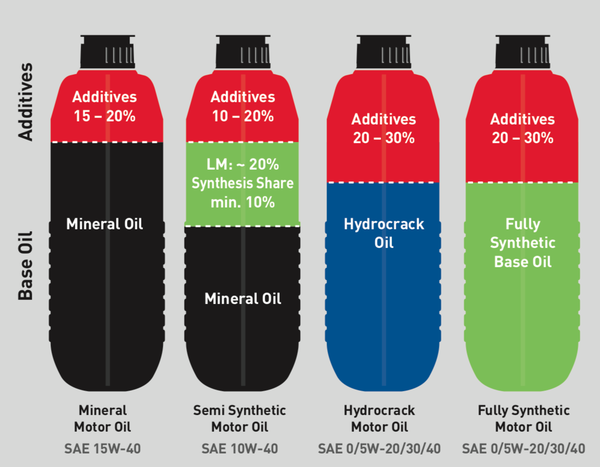
Is synthetic oil always the best to use?
There are three basic types of oil: mineral oil, synthetic oil and hydro-cracked oil (HC oil). Mineral oil is the traditional oil: simple, cheap, low performance. Synthetic oil is chemically created from single molecules (Poly-alpha-olefins, PAO). This technology has been introduced in the 1970s. It offers great performance but is also expensive. HC oils are also synthetically produced. They offer almost the same performance like PAO oil but at a more affordable price. This technology entered the market in the 1990s. Many of the new engine oils are HC oils.

How do I find the right oil for my motorcycle if I haven't got the owners' manual?
That depends on the specifications of the motorcycle manufacturer. Our online oil guide at www.liqui-moly.com helps to find the right oil. Just enter make, model and engine and you get a list of oils which all are well suited for that motorcycle.
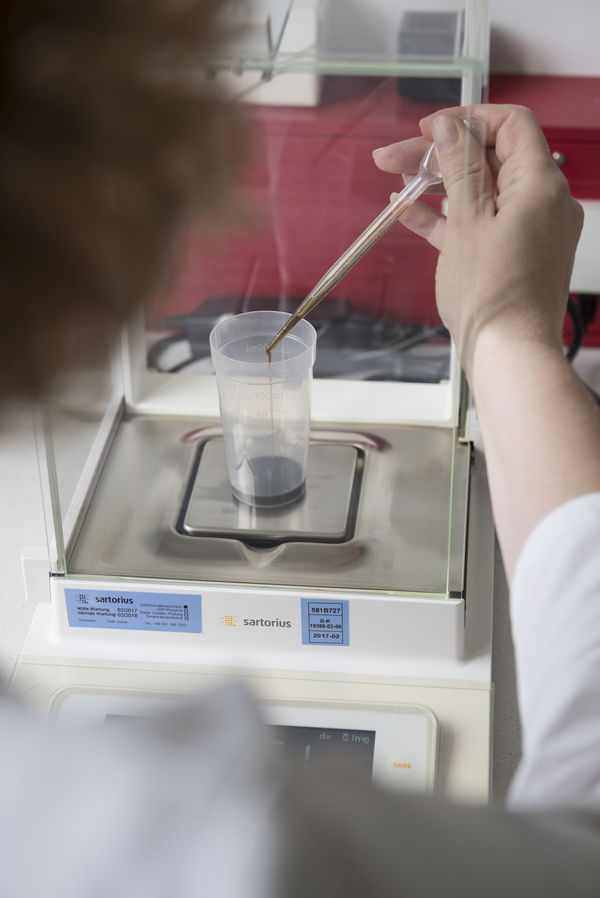
How can I tell when an oil change is really needed?
Simply follow the instructions from the manual. It is the motorcycle manufacturer who decides after how many miles or how many months the oil needs to be changed. LIQUI MOLY as an oil producer does not define separate oil change intervals. It strongly recommends to follow the motorcycle manufacturer’s instructions. Rubbing used oil between thumb and finger does not tell you anything about the current quality of the oil. The only way to properly assess the oil condition would be to run an analysis in the laboratory.
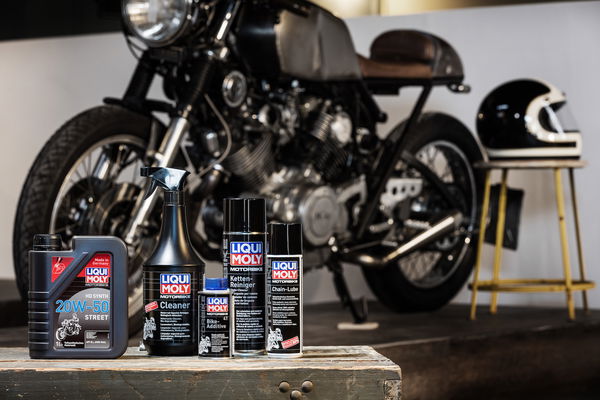
When should I do the oil change – before or after the winter break?
Always before the winter break. With every mile and every day the additives in the oil are used up. If the oil in the engine is about to reach the end of its lifetime, its capacity to neutralise acids is limited. And acids are likely to form due to condensation water and combustion residues. The fresh oil still has its full capacity of acid neutralisation agents and is able to protect the engine from corrosion during the whole winter break.











